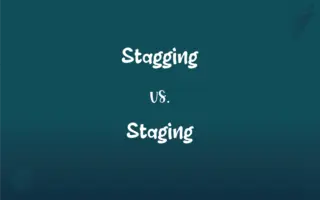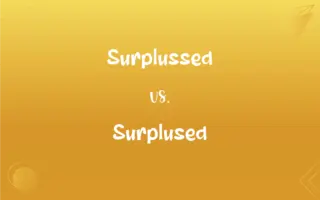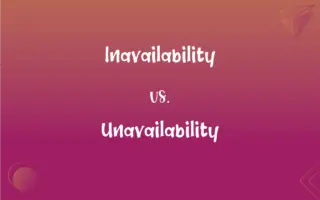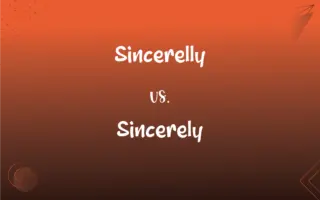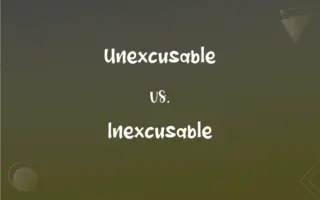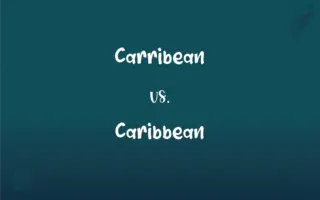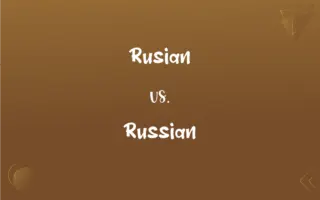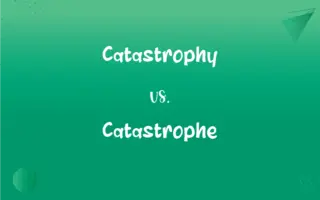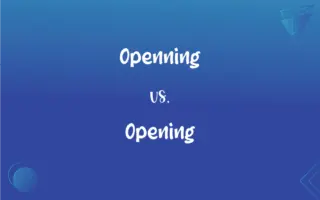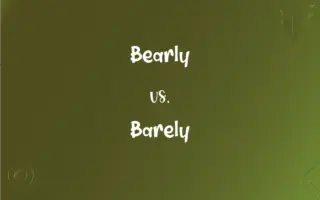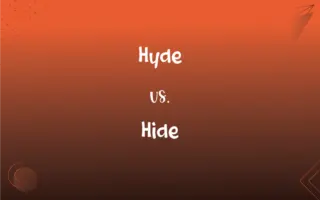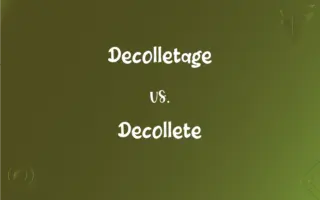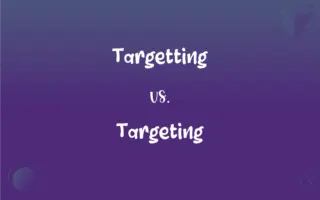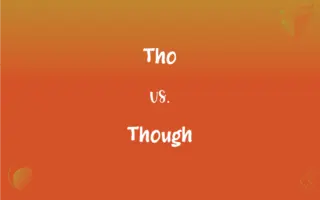Plagerize vs. Plagiarize: Mastering the Correct Spelling
Edited by Aimie Carlson || By Janet White || Updated on March 9, 2024
Plagerize is a misspelling. The correct spelling is Plagiarize, which means to steal someone else's work and pass it off as one's own.

Which is correct: Plagerize or Plagiarize
How to spell Plagiarize?

Plagerize is Incorrect

Plagiarize is Correct
ADVERTISEMENT
Key Differences
Remember "Plagiarize" contains "plagia" like "plagiarism."
Visualize the word "glacier" to remember the "ia" sequence in "Plagiarize."
Use mnemonic: "Please Let All Good Individuals Avoid Ripping Ideas: Zero Effort" to remember "Plagiarize."
Think of "i" before "a" in "Plagiarize."
Associate "Plagiarize" with "recognize" both ending with "-ize."
ADVERTISEMENT
Correct usage of Plagiarize
He didn't realize that to plagerize is a serious academic offense.
He didn't realize that to plagiarize is a serious academic offense.
It's important not to plagerize work from the internet.
It's important not to plagiarize work from the internet.
She was accused of attempting to plagerize her classmate's essay.
She was accused of attempting to plagiarize her classmate's essay.
Plagiarize Definitions
Plagiarize is the act of stealing intellectual content.
If you plagiarize, you risk damaging your reputation.
Plagiarize refers to using another's idea or writing and presenting it as one's own.
Many writers use plagiarism detection tools to ensure they don't accidentally plagiarize.
Plagiarize means to copy someone's work without crediting them.
Students are often warned not to plagiarize in their essays.
Plagiarize is to commit literary theft.
Not giving proper citation can lead one to unintentionally plagiarize.
To reproduce or otherwise use (the words, ideas, or other work of another) as one's own or without attribution.
To plagiarize the words, ideas, or work of (another person).
To present another's words or ideas as one's own or without attribution.
(ambitransitive) To use, and pass off as one's own, someone else's writing, speech, ideas, or other intellectual or creative work, especially in an academic context; to commit plagiarism.
To steal or purloin from the writings of another; to appropriate without due acknowledgement (the ideas or expressions of another).
Take without referencing from someone else's writing or speech; of intellectual property
Plagiarize implies unauthorized copying from another's work.
It's essential to cite sources to avoid accusations of plagiarizing.
Plagiarize Sentences
If you plagiarize someone else's work, you are stealing their ideas.
To plagiarize someone's writing is to disrespect their intellectual property.
Plagiarize less by investing more time in your research and analysis.
Teachers use special software to check if students plagiarize their essays.
To plagiarize is not only unethical but can also lead to severe consequences.
Schools often have strict policies to discourage students from attempting to plagiarize.
He used to plagiarize his homework, but he eventually learned the value of original work.
Many authors are vigilant to ensure they don't accidentally plagiarize existing works.
Universities use plagiarism detection tools to catch students who plagiarize.
Educators teach students how to paraphrase effectively to prevent the urge to plagiarize.
Before publishing, she double-checks her work to ensure she didn't accidentally plagiarize.
Authors who plagiarize risk losing their credibility and facing legal consequences.
Students should be taught the difference between inspiration and the temptation to plagiarize.
Some people plagiarize not knowing the full implications of their actions.
The internet makes it easier to plagiarize, but also easier to get caught.
It's not just text; copying someone's design or idea without permission is also to plagiarize.
Artists and creators also face issues with others attempting to plagiarize their work.
To plagiarize material from the internet is a common problem in schools.
FAQs
Why is it called Plagiarize?
The term "Plagiarize" derives from the Latin word "plagiarius," meaning "kidnapper" or "plunderer."
What is the pronunciation of Plagiarize?
It's pronounced /ˈpleɪdʒəˌraɪz/.
What is the verb form of Plagiarize?
The verb form is "plagiarize."
Which preposition is used with Plagiarize?
Prepositions like "from" can be used with "Plagiarize" (e.g., plagiarize from someone).
Which vowel is used before Plagiarize?
The indefinite article "to" is used before Plagiarize.
What is the root word of Plagiarize?
The root word is the Latin "plagiarius."
Which article is used with Plagiarize?
No specific article is used with the verb "Plagiarize."
Which conjunction is used with Plagiarize?
Any conjunction can be used based on the sentence structure.
Is Plagiarize an adverb?
No, Plagiarize is not an adverb.
What is the singular form of Plagiarize?
Plagiarize is a verb, and its singular form is "plagiarizes" in third person singular.
Is the word Plagiarize imperative?
Yes, in the context of "Do not plagiarize!"
What is the plural form of Plagiarize?
Verbs don't have plural forms, so there's no plural form of "Plagiarize."
What is a stressed syllable in Plagiarize?
The stressed syllable is "Pla."
Is Plagiarize a negative or positive word?
Plagiarize has a negative connotation, as it refers to an unethical act.
Is Plagiarize a vowel or consonant?
"Plagiarize" is a word composed of both vowels and consonants.
Is the Plagiarize term a metaphor?
No, "Plagiarize" is not a metaphor.
Is Plagiarize a noun or adjective?
Plagiarize is a verb.
Is Plagiarize an abstract noun?
No, Plagiarize is a verb.
How many syllables are in Plagiarize?
Plagiarize has four syllables.
Is Plagiarize a countable noun?
Plagiarize is a verb, not a noun.
Is Plagiarize a collective noun?
No, Plagiarize is a verb.
How do we divide Plagiarize into syllables?
Plagiarize is divided as Pla-gi-a-rize.
What part of speech is Plagiarize?
Plagiarize is a verb.
About Author
Written by
Janet WhiteJanet White has been an esteemed writer and blogger for Difference Wiki. Holding a Master's degree in Science and Medical Journalism from the prestigious Boston University, she has consistently demonstrated her expertise and passion for her field. When she's not immersed in her work, Janet relishes her time exercising, delving into a good book, and cherishing moments with friends and family.
Edited by
Aimie CarlsonAimie Carlson, holding a master's degree in English literature, is a fervent English language enthusiast. She lends her writing talents to Difference Wiki, a prominent website that specializes in comparisons, offering readers insightful analyses that both captivate and inform.


